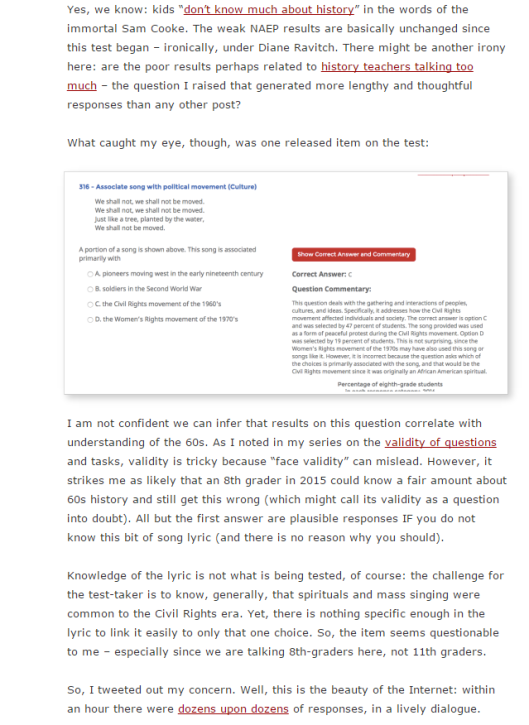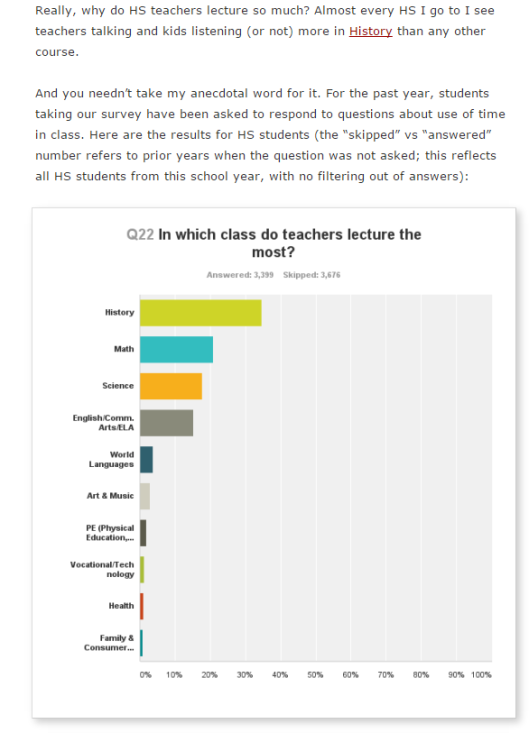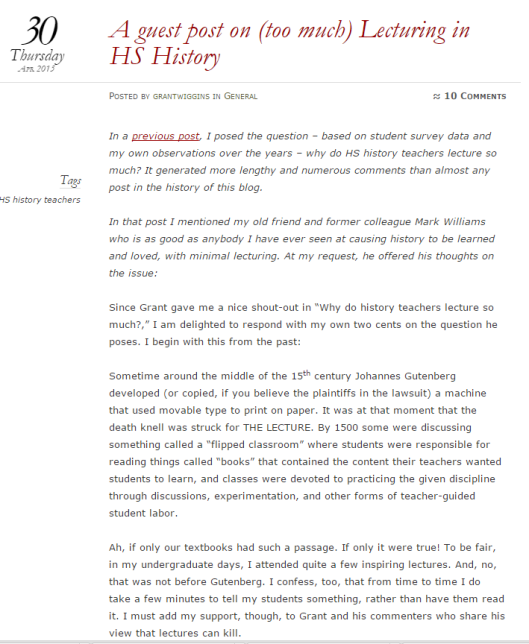Well, it has been a while! I apologize for the long time between posts. I spent a week in Miami working with that district and our own Val McVey on an exciting elementary project that is near completion, and then spent two weeks in Massachusetts attending the Institute for Civics Studies and the ending Frontiers of Democracy conference. It was a fantastic time; I got to be back home and spending two weeks talking civics with some very smart and engaging people. Plus, you know, the Red Sox.
One of those smart and engaging people I met is Sarah Shugars. She works with the Tisch College of Citizenship and Public Service at Tufts, and does some excellent advocacy and research concerning civic life. During the Frontiers of Democracy Conference, Sarah led a session about how we engage in civic work. My own group during that session had a somewhat heated discussion about whether civic work should be ‘fun’.
What do we mean by civic work? Put simply, ‘civic work’ is essentially the engagement of the individual (not necessarily the citizen! one need not be a citizen to engage in civic work) in the civic life of a community. This work ranges from simply having a conversation with a neighbor or colleague about an issue of relevance to voting to active protest and beyond. Our definition of civic work must necessarily be expansive; our venues of civic work are expansive, and some are more open to certain types of civic work than others.
The debate in my group during this session was not necessarily connected to what we meant by ‘civic work’. Instead, the debate really began when one of the folks in the group suggested that the best way to encourage engagement was to make sure that such engagement could be seen as ‘fun’. The problem, I think, centers around the language that we use to define ourselves and our work. When I hear the term ‘fun’, I think of giggles and play, rather than work for change. As one of the folks in the group suggested, there was probably nothing ‘fun’ about the Edmund Pettus Bridge. If we have to make everything ‘fun’ in order to engage our fellow citizens in civic life and civic work, doesn’t that raise questions about the feasibility of long term engagement? As Sarah suggests
There can be a paternalistic danger in this approach, too – a tendency to say, “we’d better make civic work fun because that’s the only way we can get the people to do what is best for them.”
I hesitate to say this, but I do think that sometimes that is actually the attitude of some folks that work in civic education and civic life. I know that as a classroom teacher, ‘I have to make this fun so that my kids come away with what I want them to and they want to engage in this learning’ was always at the back of my mind when crafting units. And, friends, as you well know, that sort of thing gets exhausting. You cannot simply make everything ‘fun’, and if it requires ‘fun’ in order for folks to engage in something that should be valuable to their lives and future, not to mention the common good, well, have we really made a difference? Will the outcome of that work last? I have my doubts.
So what then do we mean by ‘fun’? Do we mean public spiritedness, rather than fun, as some suggested during that session? Is it a matter of more clearly defining what we mean by ‘fun’? The language that we use in the work that we do is important. I struggle with that word ‘fun’. Perhaps ‘enjoyable’ or ‘gratifying’ might be more appropriate terms, if ‘public spiritedness’ is too dry a term in this case? I don’t know. I don’t have an answer for this, honestly.
I do believe that civic work should be gratifying. When you engage in a cause that you believe in, no matter where you fall on the partisan divide, I believe that to be a gratifying experience. I don’t know whether it should always be ‘fun’ (though there may be times!).
I don’t know. Maybe I will ask my 7 year old daughter. She loves both civics AND fun.






